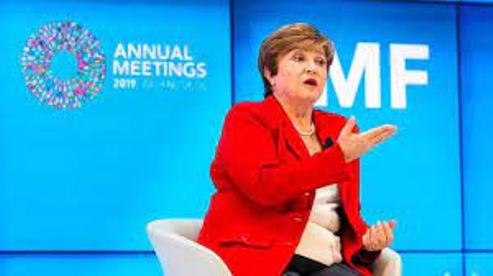Nigeria Facing Worsening Economic Disaster – IMF Report
LAGOS FEBRUARY 13TH (NEWSRANGERS)-The International Monetary Fund said Nigeria is facing a worsening economic crisis.
The global lender stated this in a new report titled, “IMF Executive Board Concludes Post Financing Assessment with Nigeria.”
According to the IMF, stalled per-capita growth, poverty, and high food insecurity have exacerbated the ongoing cost-of-living crisis in Nigeria.
The report came amid rising inflation, an exchange crisis, weak economic growth, and business shutdowns.
According to the report, low revenue collection has hampered the provision of services and public investment.
It noted that headline inflation reached 27 percent year-on-year in October (food inflation was 32 percent), reflecting the effects of fuel subsidy removal, exchange rate depreciation, and poor agricultural production in the country.
The report partly reads, “Nigeria faces a difficult external environment and wide-ranging domestic challenges. External financing (market and official) is scarce, and global food prices have surged, reflecting the repercussions of conflict and geo-economic fragmentation.
“Per-capita growth in Nigeria has stalled; poverty and food insecurity are high, exacerbating the cost-of-living crisis. Low reserves and very limited fiscal space constrain the authorities’ option space.
“Against this backdrop, the authorities’ focus on restoring macroeconomic stability and creating conditions for sustained, high, and inclusive growth is appropriate.”
The report noted that on January 12, 2024, the Executive Board of the International Monetary Fund concluded the Post Financing Assessment and endorsed the Staff Appraisal on a lapse-of-time basis.
It added that Nigeria’s capacity to repay the IMF is adequate.
The IMF also expressed optimism that the new administration had made a strong start, tackling deep-rooted structural issues in challenging circumstances.
Immediately, it adopted two policy reforms that its predecessors had shied away from: fuel subsidy removal and the unification of the official exchange rates.
It added, “The new CBN team has made price stability its core mandate and demonstrated this resolve by dropping its previous role in development finance. On the fiscal side, the authorities are developing an ambitious domestic revenue mobilisation agenda.”
According to data from the Debt Management Office, Nigeria currently owes the IMF $2.8 billion. The Federal Government, in its 2024 budget, plans to spend about N8.2 trillion on debt servicing.
In a new report, professional services firm PricewaterhouseCoopers warned that Nigeria’s rising debt service costs might affect the country’s debt servicing ability, credit rating outlook, and borrowing costs.
PwC said debt service could rise from N8.25tn in 2024 to N9.3tn in 2025 and further to N11.1tn in 2026.
“With a high debt servicing to revenue ratio, the government aims to increase domestic debt in 2024 to meet its deficit funding requirements,” the report read in part.
Vanguard
For advert placement, events coverage, public relation consultancy, media placement and further inquiries please WhatsApp 2348023773039 or email: labakevwe@yahoo.com
Short URL: https://newsrangers.com/?p=120451

































